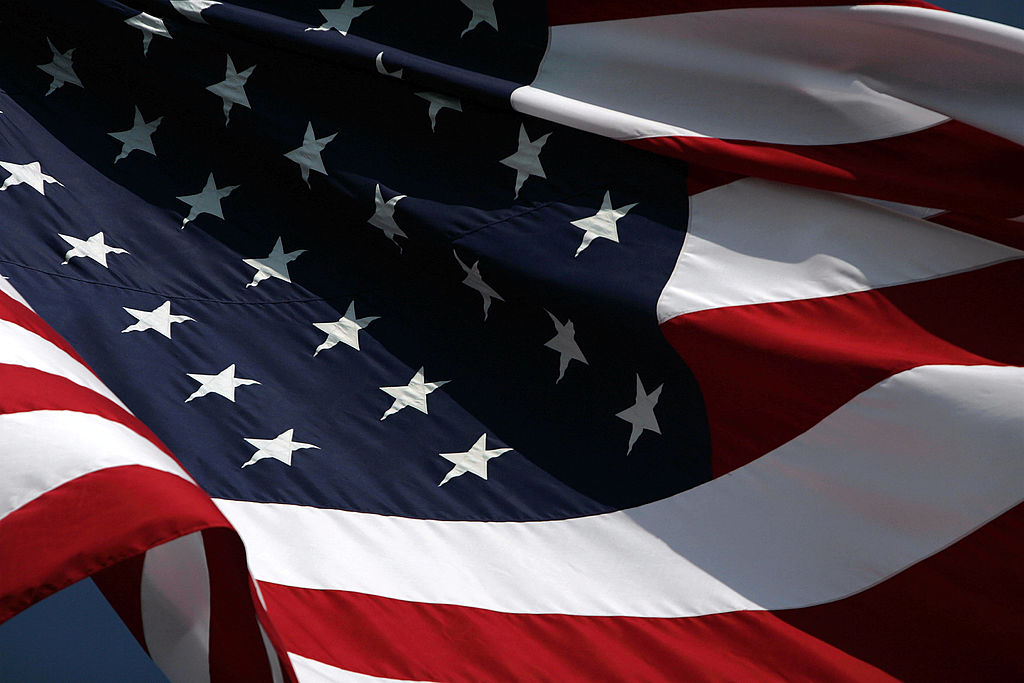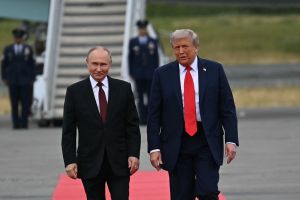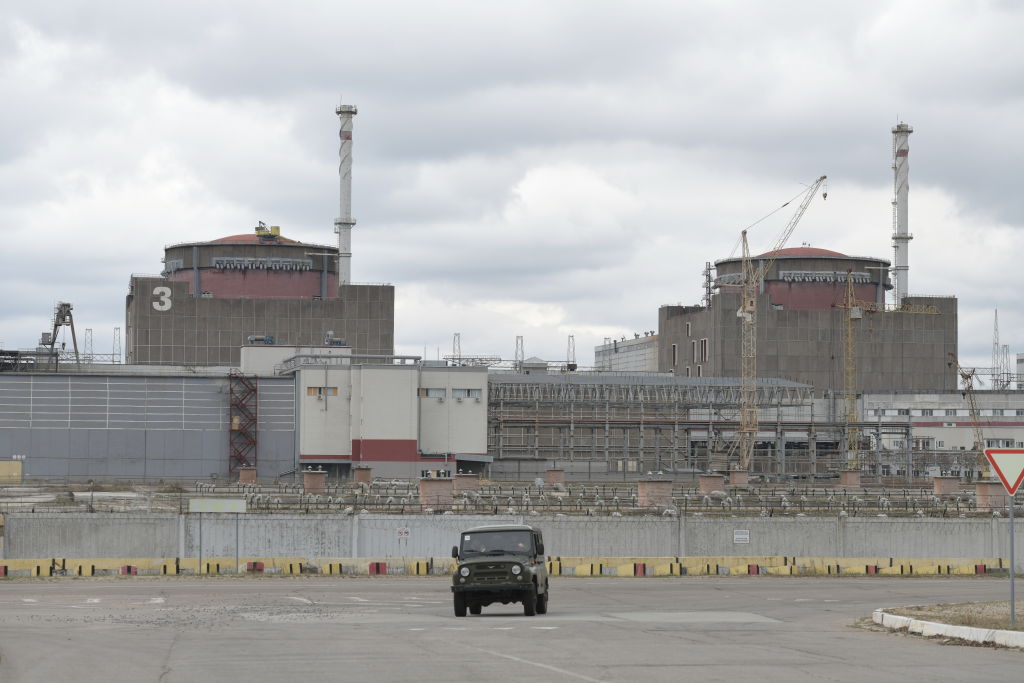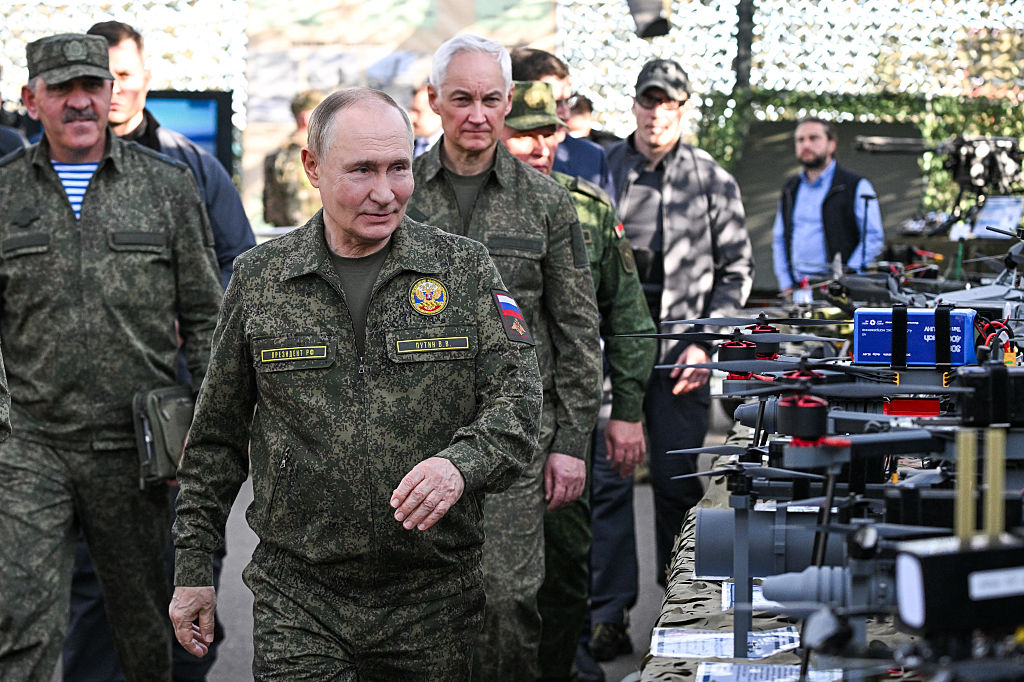Our administration would have us believe that Joe Biden is the leader of the free world. But he isn’t — and our relative inaction on Ukraine should firmly put to rest the idea of “American exceptionalism.” While Ukrainians were heartened by British prime minister Boris Johnson’s April trip to Kyiv, our commander-in-chief has adopted a different strategy for this active war zone: send in the women.
Security concerns are ostensibly to blame for Biden being MIA, but sending in three of the country’s most important ladies — Speaker of the House Nancy Pelosi to Kyiv, First Lady Jill Biden and Vice President Kamala Harris to neighboring countries in Eastern Europe — seems an odd way to demonstrate that the administration is worried about security. Defense secretary Lloyd Austin and secretary of state Antony Blinken also headed to Kyiv in late April. Despite the president’s absence, and despite his repeated commitments to not ever send in American troops, Biden has stressed and re-stressed America’s alleged role in “leading the alliance.”
In an April speech, sounding a touch Trumpian, the president noted that “our NATO allies, our EU partners — they’re going to pay their fair share of the costs as well.” The trouble is that none of our NATO allies have spent the last eight decades bragging of their exceptionalism to anyone who’ll listen, or insisting that their leaders speak not just for their respective countries but for the entire free world. Those beliefs are so ingrained in America that they have come to define our patriotism.
Every country styles its own patriotism differently: for Germans, it might be about being the strongest, the best, the über alles. For the Italians, pride in food, culture and the uniquely Italian dolce far niente — the sweetness of doing nothing. But for Americans, patriotism has long been predicated on the notion of our exceptionalism. A belief that our nation, our people, our leaders, our system of government, share some secret gift — that whether by divine right, or by military might, we are the unquestioned leaders of the free world.
The only problem is, it’s not true. Not now, and not for a long time. The events, non-events and personalities of the last decade should dispel any remaining faith our citizenry has in this notion. And the blame is truly nonpartisan.
During the Obama years, the administration’s lead-from-behind “doctrine” amounted to nothing short of America’s abdication of international responsibility. Crises came and crises went, but none seemed to prompt the so-called leader of the free world to reconsider whether withdrawing from the world stage was the right thing to do. In 2016, when Obama left office, Donald Trump seemed primed to overturn, undo and disembowel as many of his initiatives as possible. Yet when it came to international affairs, Trump’s America First isolationism was just Obama’s leading-from-behind by another name.
But America’s unexceptionalism stems from more than the political whims of two of her recent leaders. It’s a change that has been brewing for decades: we have grown soft. Our packages arrive the same day we order them. Our groceries are delivered within the hour. Our schools are taking more and more responsibility away from parents — an overbearing in loco parentis that, incidentally, is terrible for kids and parents alike. Taxes have never been easier to file. You can hire and speak to a therapist from an app on your iPhone. And while the picture is far from entirely rosy — we have massive social and political divisions, an economy that is still reeling from the pandemic, an opioid epidemic and a spiraling mental health problem with our teens — our national crises could be far worse.
We don’t share a border with any countries that wish us harm. Endless miles of ocean separate us from the countries that do. We don’t have other nations seriously threatening our destruction, firing rockets over our borders or targeting our civilians en masse. While much of this safety is due in large part to the many Americans who work in our intelligence agencies, police forces and military, the average American doesn’t walk around fearing that his life is in imminent danger.
Without these kinds of immediate threats — the absence of which make us among the luckiest, but still unexceptional, nations on earth — our citizenry is left to mire itself in ersatz crises of the most petulant nature. It’s hard to be exceptional when your causes are so pathetically underwhelming.
When globally significant challenges arise, like saving our Ukrainian allies from an unjust, expansionist war, we are not out in front as we like to pretend, but instead seek safety in numbers, excusing our relative inaction by situating our responsibility in the larger confines of coalition. Americans read on as our papers of record report on human rights abuses, Russian aggression and Ukrainian despair. The “leader of the free world” looks on and does not do nearly enough.
Inspirational efforts within the United States have largely come courtesy of individuals and community organizations instead of by government decree. What kind of “leadership” is that?
This article was originally published in The Spectator’s June 2022 World edition.

























